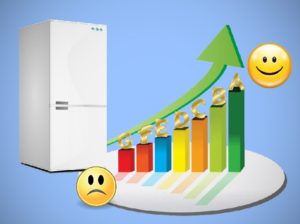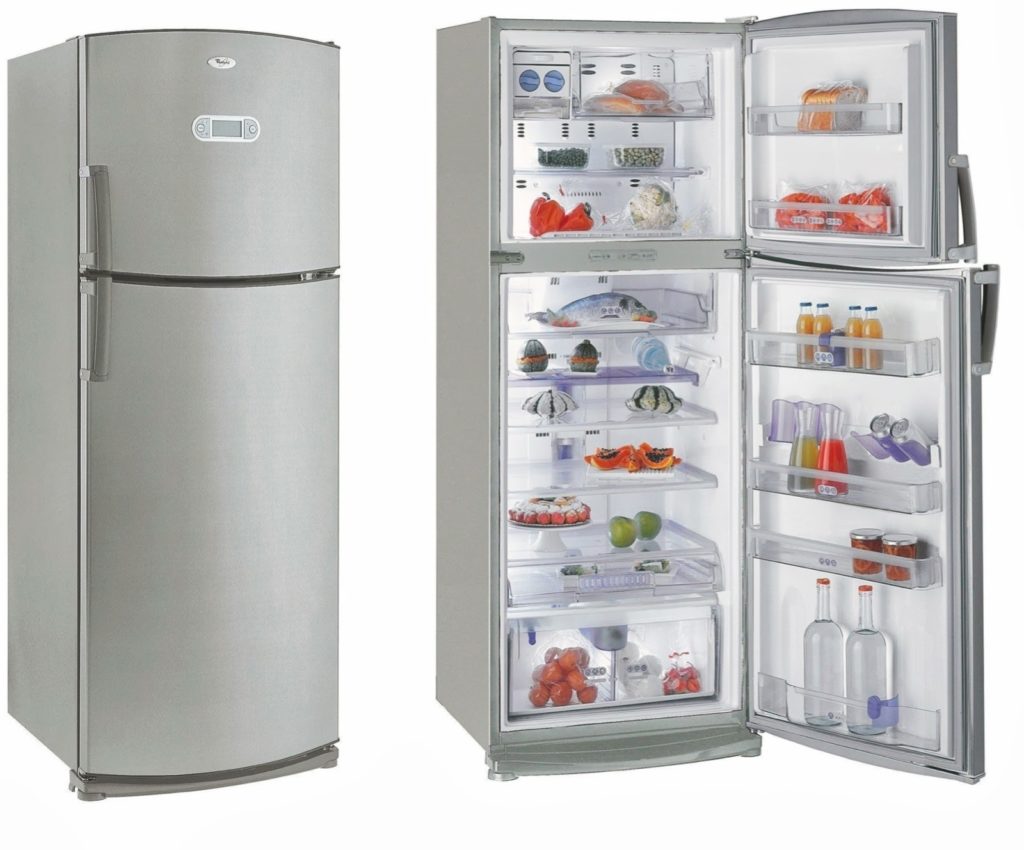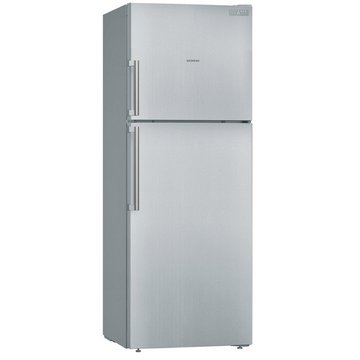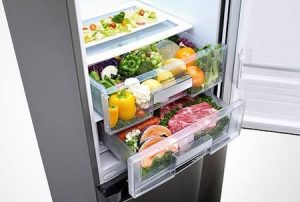 The refrigerator, like any other electrical appliance, runs on mains, consuming a certain amount of energy. Electricity prices are constantly growing, so many consumers are interested in what is the energy consumption of the refrigerator, is it really necessary to pay attention to this parameter when buying new equipment. How to choose a device that "winds up" as little as possible kW, which model is the most economical?
The refrigerator, like any other electrical appliance, runs on mains, consuming a certain amount of energy. Electricity prices are constantly growing, so many consumers are interested in what is the energy consumption of the refrigerator, is it really necessary to pay attention to this parameter when buying new equipment. How to choose a device that "winds up" as little as possible kW, which model is the most economical?
Instrument Classification
Refrigerators are the only appliances in the house working around the clock. It is necessary to turn off the device for a while, as all the products in it will immediately become unusable. There is an opinion that the share of this unit accounts for a third of all energy consumed. There are situations when the cost of buying a refrigerator is less than the cost of maintaining it, in particular, the electricity it consumes. This is especially noticeable when using industrial equipment.
This indicator indicates high-quality energy consumption, that is, how economically it is used. The optimal level of energy efficiency is in the range from 10 to 50 percent.
Often this parameter is mixed with energy consumption - the amount of energy consumed, measured in kilowatt hours. These indicators are inversely related. For example, equipment that consumes many kilowatt hours has a lower percentage of energy efficiency. Taking into account the energy efficiency index is mandatory when buying a new refrigerator. This indicator indicates the ratio of energy used to the approved standard. It is important to remember: a low-index technique is considered more economical and efficient.
The energy consumption of a refrigerator depends on many factors:
- unit power (the larger it is, the greater the energy consumption);
- chamber volume (to maintain normal operation, small-sized installations, unlike larger ones, require less energy);
- degree of utilization of the device;
- ambient temperature (the frequency of turning on the equipment at a low temperature is reduced, which means that energy consumption is reduced);
- opening / closing frequencies (since warm air enters the refrigerator from the outside, each door opening is accompanied by the inclusion of a cooling system);
- type of equipment (the energy consumption of the refrigerator is lower than that of the freezer, the two-chamber unit is higher than a conventional refrigerator);
- manual defrosting is less costly, an automatic forced system needs more energy);
- equipped with an ice maker or dispenser - additional energy consumption.
Experts say that the refrigeration unit consumes an average of 13 kW per month, and the rate of some models may be less, while others, on the contrary, are several times more. Consumption level manufacturers usually indicated either in the instructions or on the back of the device.
A special marking of modern household appliances has now been introduced. The energy class of the refrigerator and the efficiency index characterize how economically this device consumes electricity. To carry out the necessary calculations, the following nuances were taken into account: dimensions of equipment, annual consumption rate, temperature range of a specific model, climatic conditions. There are ten energy classes for refrigerators; each is listed below.
Energy classes of refrigerators, table of compliance of energy consumption to approved standards:
| Classes, their characteristics | Energy efficiency | |
| A +++ | appliances of this class save about 50% of energy | less than 22 |
| A ++ | 22-33 | |
| A + | 33-44 | |
| BUT | wastefulness does not exceed 35% | 44-55 |
| AT | 55-75 | |
| FROM | appliances save up to 15% of energy, this level is considered average in terms of energy consumption | 75-95 |
| D | 95-110 | |
| E | devices carefully use only 10% of energy | 110-125 |
| F | 125-150 | |
| G | too expensive equipment | over 150 |
Thus, the data presented above indicate that the refrigerator of class a and class g differ in their level of energy efficiency. If the first option with an indicator of less than 50% is considered quite economical, then the energy efficiency of the second exceeds 150%. Today, such a technique is found less and less, as it is considered costly and disadvantageous. Naturally, the energy class a (a +, a ++, a +++) of the refrigerator is considered the most rational.

Naturally, a person does not pay attention to daily energy expenditures, considering several hundred watts a day a trifle for the family budget. However, you only need to think about losses for the year or the entire life of the refrigerator, as the figures obtained are horrifying. If your refrigerator is out of date, energy saving is limping, is it time to think about purchasing a more modern and economical unit. Do not hesitate, such a technique will surely pay off. The energy class of a refrigerator affects its price. For example, the cost of a class b refrigerator will differ from a similar device only in another class, and the difference in price can be quite significant (about 25%).
If the financial condition does not yet allow you to purchase new equipment, take care of the old one: check the door around the entire perimeter, as well as the hinge area for leaks of cold. To do this is very simple: just take a sheet of paper, put it under the door and stretch it. If there is no resistance, we recommend tightening the hinges or changing the gasket. In addition, the unit must not be installed close to the stove or against the wall. It is important to leave a small gap providing sufficient air circulation, and also regularly clean the back panel with a vacuum cleaner. Remember, saving a few centimeters of the area can result in extra energy costs.
Manufacturers of the most energy-efficient models
Today, economical refrigerators are widely represented in the market. The most popular equipment is class A, A +, A ++, A +++. Currently, the most economical refrigerators are produced by manufacturers such as Siemens, Liebherr, Bosch, LG, Samsung, Whirlpool. Among the budget models I want to highlight Atlant, Nord, Ariston, Indesit, etc.
Siemens KD 29EAL40 is considered the best among refrigerators with a volume of up to 200 liters. This model has the highest energy efficiency class with an index of 21.14, electricity consumption per year about 132 kWh. Next, we compare these indicators with similar indicators of the refrigerator below the class - Bosch KDV 29VL30. The model with a chamber volume of 194 liters has an energy efficiency index of 32.84, and electricity consumption is 205 kWh / year. This example only confirms the significant advantage of superior technology.

If you want to save a little on housekeeping, rationally approach the choice of equipment. The refrigerator works constantly, so it is very important to give preference only to energy-saving models. The purchase of such household appliances will significantly reduce the consumption of electric energy, which means it will save the family budget.

